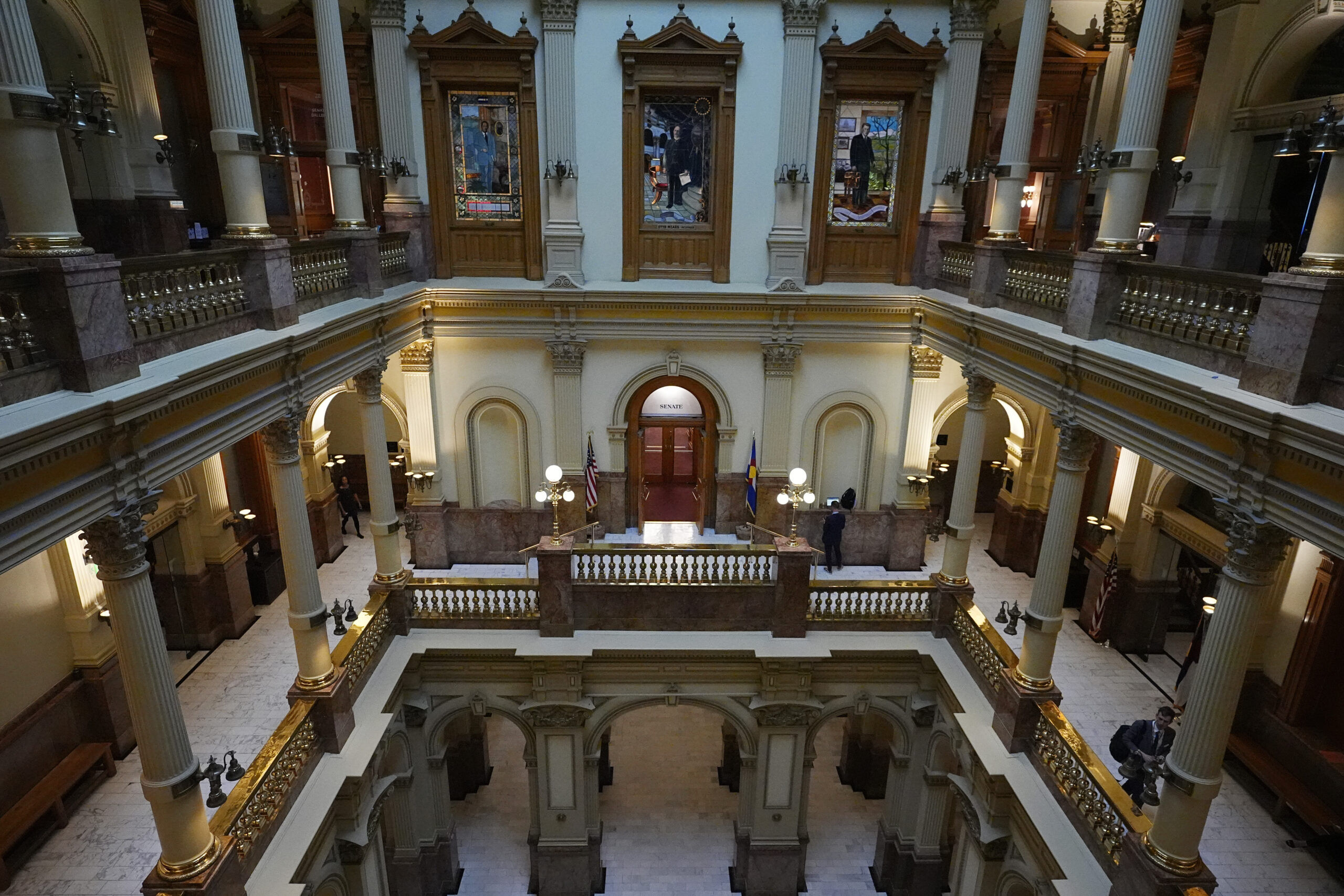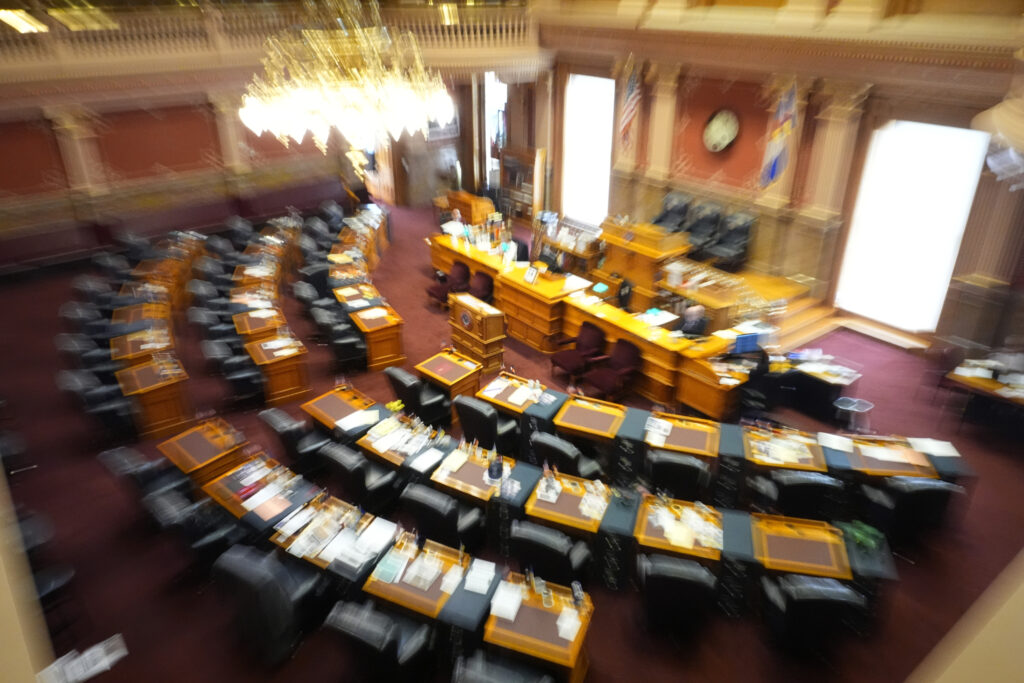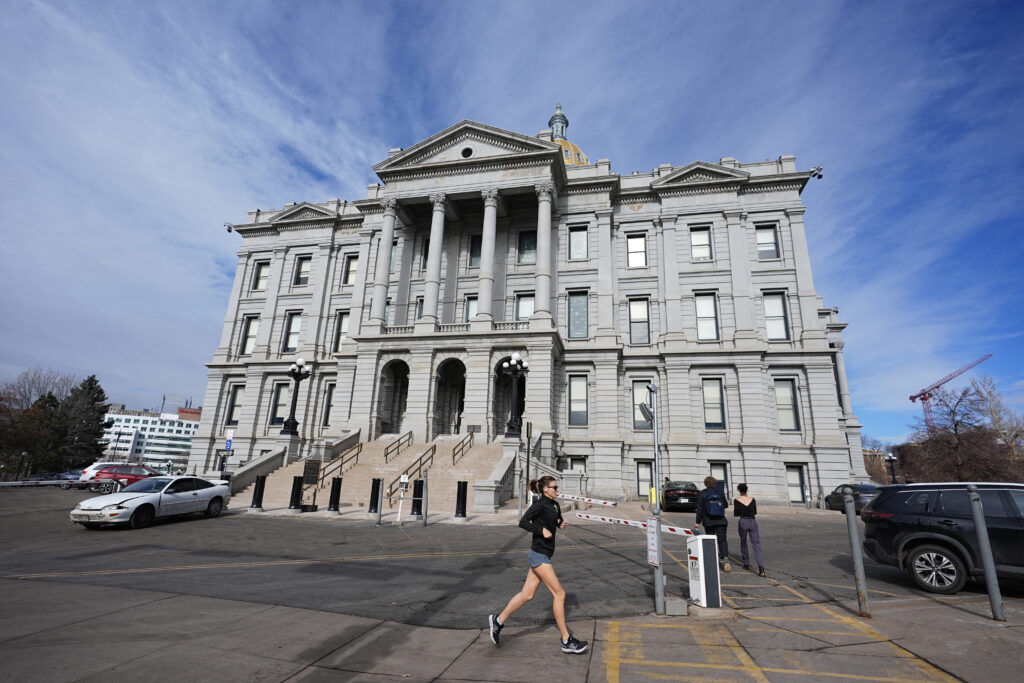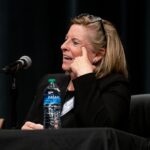Democrats retreat in Vail raise intraparty eyebrows

A group of Democratic state legislators headed to Vail during the Oct. 4 weekend for an “opportunity caucus” retreat that also included lobbyists, raising a host of questions, including who paid for the getaway and whether the policymakers discussed the legislative business away from the public eye.
The “opportunity” caucus rejected the latter insinuation, saying the legislators met to discuss the business of the nonprofit entity and not legislation.
The progressive wing of the Democratic caucuses and its allies have criticized the retreat, which moderate legislators attended, in yet another tension point highlighting the division between the two wings of the party.
Sen. Lindsey Daugherty, D-Arvada who leads* the Opportunity Caucus said the gathering was an avenue to talk about worries arising from recent polls showing people are leaving the Democratic Party in Colorado by the thousands.
“We are really worried about that,” Daugherty said, adding that people are also concern about being able to pay for housing or groceries, which has been a common focus at the state Capitol for the past several years.
She said the Opportunity Caucus wants to get back to the issues that the majority of people in Colorado want to address, as well as run proposals that work on the problems their constituents have raised.
“We’re focusing on accessibility, accountability and affordability,” Daugherty said. “We don’t believe we are moderate or progressive Dems, just a group of Dems focused on issues everyday Coloradans care about.”
They intend to be inclusive of all Democrats and the group’s goal was never to go after other party mates, she added.
The group is a 501(c)(4) nonprofit, which registered with the Secretary of State on Jan. 24. Other members of the Opportunity Caucus are Sens. Dylan Roberts of Frisco, Marc Snyder of Colorado Springs, Judy Amabile of Boulder, Kyle Mullica of Thoronton; and Reps. Cecelia Espenoza and Sean Camacho, both of Denver; Karen McCormick of Longmont; Meghan Lukens of Steamboat Springs; Rebekah Stewart of Lakewood; Jacque Phillips of Westminster; William Lindstedt of Broomfield; Michael Carter of Aurora; and Lesley Smith of Boulder.
The retreat’s site where roughly 15 Democrats stayed — the Sonnenalp Hotel in Vail — offers rooms for about $500 per night.

The group’s retreat appeared to anger progressive Democrats and their allies.
On X Monday, Deep Singh Badhesha, a Democratic lobbyist with ties to progressive legislators at the Capitol, suggested that Kent Thiry, who has bankrolled a series of ballot measures seeking significant election changes, was one of the funders.
The Opportunity Caucus is tied to One Main Street, which, from 2022 to 2024, raised more than $1.1 million to boost candidates for the state House and Senate with an eye toward business interests.
One Main Street’s independent expenditure committee (IEC) does not disclose its largest contributors, though funders of the group’s 501(c)(4) entity have included the Apartment Association of Metro Denver and the Associated Contractors of Colorado.
About $800,000 went to the IEC from One Main Street’s 501(c)(4).
One Main Street’s website shows eight moderate Democratic candidates it backed who won their primaries last year.
Daugherty said the retreat was paid for by the 501(c)(4) entity via membership dues paid for by the lawmakers.
A search of the campaign finance reports did not show any caucus dues paid to the 501(c)(4) with campaign funds from the members.
Lawmakers have listed caucus dues through TRACER.
In 2024, House Democratic lawmakers paid more than $52,000 in caucus dues, at about $2,500 per person, to several cash funds for House Democrats.
Senate Democrats paid just over $10,000 in caucus payments in 2024, with dues set at $750 per person.
No payments to the Opportunity Caucus showed up in those reports.
The Opportunity Caucus, the founders said in an op-ed, aims to “focus on the issues that truly matter to Colorado families — the kitchen-table concerns that affect paychecks, livelihoods and futures.”
“From housing affordability to high-quality jobs, better schools and strengthening our local economy, we are dedicated to pragmatic solutions that expand opportunity for all Coloradans. Together, we aim to foster a culture of leadership where problem-solving and consensus building create lasting progress for working families,” the group’s leaders said.

Among those who weighed in on the retreat was Rep. Meg Froelich of Englewood, who viewed it via progressive filters.
“Democrats should not cater to corporate interests, succumb to polluters’ calls for leniency, give into industry’s desire to rig the system or allow the wealthy to alter our electoral system in their favor,” she said on Bluesky, a social media platform like X.
The Working Families Party’s Wynn Howell, in a statement Friday, added: “This is what corporate corruption in our state legislature looks like: bringing legislators to an all-expenses-paid retreat at an upscale hotel in Vail, for ‘trainings’ with corporate lobbyists. These are exactly the kind of behind-closed-doors big money special interest politics that alienate voters and erode trust in our democracy.”
He also said it was “galling” to see lawmakers spending time mingling with corporate lobbyists at luxury retreats, instead of working to solve “real problems.”
In Colorado, the Working Families Party took in $1.5 million in 2024, mostly from unions. It spent about $336,000 in support of Democratic candidates for county commissioner, district attorney and largely progressive state lawmakers.
Some who attended the retreat told Colorado Politics that conversations focused primarily on issues, not on potential legislation.
Was it a public meeting?
That question hinges on a couple of factors, including a 2024 law that carved out the General Assembly from certain parts of the state’s open meetings law.
Daugherty said the caucus’ attorney, Scott Martinez, was present for the entire time in order to answer questions and ensure the members complied with the law.
Under Amendment 41, she said there are two exemptions to what are called “gift” prohibitions: One is answering questions as part of a program, which must educational, and the other is members are required to pay dues.
Jeff Roberts of the Colorado Freedom of Information Coalition outlined several factors contained in Senate Bill 24-157, the law carving out exemptions for legislators from the open meetings law.
The law changed the definition of “public business” for the General Assembly, Roberts explained.
What’s covered under the open meetings law are discussions of legislation, bills, resolutions or memorials already introduced; proposed legislation if in draft form, prepared by the legislature’s attorneys and discussed by a quorum or a statutory committee, interim committee or committee of reference, either during a regular or special session; or matters that are by nature interpersonal, administrative, personnel, planning processes or training.
So, where could the retreat fit as a matter of public business?
Daugherty said the purpose of the retreat was not to discuss public business — it was to discuss the business of the nonprofit.
There were educational panels during the retreat but nothing that would influence votes or open the members up to legal issues, she said.
Roberts cited Cole v. State, a 1983 ruling by the Colorado Supreme Court that held that legislative caucus meetings are meetings of policymaking bodies within the state’s open meetings laws and are therefore subject to the requirement that they must be open to the public at all times.
The Cole decision, however, did not get into a subsection of a party caucus, since the Opportunity Caucus — which has 15 members in the House and Senate — is just a portion of the total caucuses in both chambers.
There are 43 Democrats in the House and 23 in the Senate.
If something like this were to get litigated, Roberts said, it would be up to a judge to decide whether to look at the 2024 law or to the 1983 Supreme Court decision.
The 2024 law did not exclude caucus meetings from the open meetings law.
Roberts said the retreat is yet another example of lawmakers doing more outside the public eye, along with meetings by email or text or communicating via disappearing messaging apps.
Those can now happen without public notice or scrutiny.
Roberts said whoever paid for the retreat also matters since it can show who is trying to influence lawmakers.
Editor’s note: a previous version identified Rep. Shannon Bird as a co-leader of the caucus; however, while she was a founder she is no longer involved.













